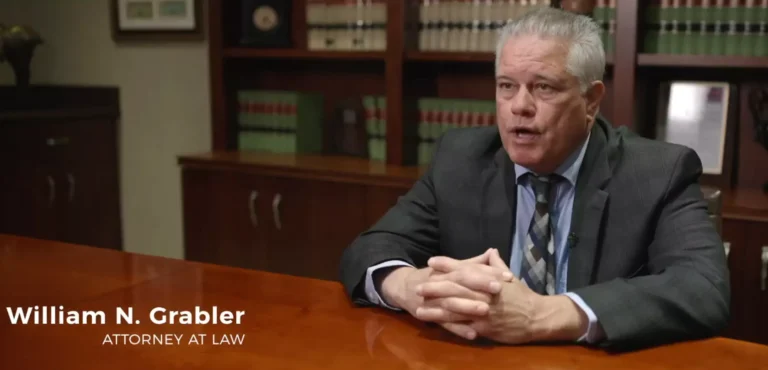Sexual Abuse Claims
Sexual Abuse Claim Lawyers
Sexual assault (SA) is a deeply traumatizing experience that can leave lasting scars. If you or a loved one has been a victim of such a heinous act, understanding your legal rights and options for seeking justice is critical.
Beyond the criminal side of sexual assault cases, there are civil personal injury claims. Whereas criminal proceedings are designed to hold the offender liable under New Jersey state statutes, personal injury claims may help you recover monetary damages for the physical and emotional distress the event caused.
However, civil claims are incredibly complex and difficult to navigate. That is why you need to connect with experienced sexual abuse claim lawyers who are familiar with New Jersey laws and the nature of these challenging cases. Graces, Grabler & Lebrocq (GGL), with our team of sexual abuse claim lawyers, is committed to helping survivors pursue justice.
What Is Considered Sexual Assault?
The State of New Jersey has a very broad definition of sexual violence, which is meant to protect individuals from a wide range of unwanted sexual acts. According to New Jersey state law, sexual violence is “any sexual act that is perpetrated against someone’s will.” The law outlines several types of sexual violence offenses, which include:
- Completed nonconsensual sex acts (Rape)
- Attempted nonconsensual sex act
- Abusive sexual contact (Unwanted touching)
- Non-contact sexual abuse (Threatened sexual violence, verbal sexual harassment)
Sexual assault occurs when someone causes you bodily harm or puts you in reasonable fear of bodily harm while carrying out unwanted sexual acts against you. There is a common misconception that someone you are in a relationship with cannot commit sexual assault or abuse. This is simply not true.
Regardless of whether you are dating or married to the offender, any nonconsensual sexual activity falls under New Jersey sexual assault laws. Due to the complexities of these cases, it is vital that you work with sexual abuse claim lawyers and let them conduct a thorough evaluation of your case.
Understanding Sexual Assault and Abuse Statistics
One in six women and one in thirty-three men will be sexually violated in their lifetimes, according to the Rape, Abuse, and Incest National Network (RAINN). In addition, college-aged women are four times more likely to be sexually assaulted than the general population, making them the group at the greatest risk of sexual assault.
Juvenile sexual assault is particularly rampant. According to RAINN, 15% of sexual abuse and rape victims are eleven or younger. Even worse, 93% of juvenile sexual assault victims know their attackers.
No matter the nature of the sexual assault, these events can be physically and psychologically damaging to the victim. However, incidents where the victim knows the attacker are especially harmful.
The above statistics also illustrate just how prevalent sexual assault and abuse have become. Unfortunately, many victims experience feelings of shame and guilt following an incident, which can discourage them from coming forward.
If you have had similar experiences, remember that you are the victim and have a right to seek justice. Sexual abuse claim lawyers can stand in your corner and fight on your behalf, holding the perpetrator liable for the negative impact they have had on your life.
What to Do Following a Sexual Assault
If you have experienced a sexual assault, it is important to act fast. Specifically, you should:
ENSURE YOUR SAFETY
First and foremost, get to a safe place. You need to distance yourself from the attacker and shelter somewhere. If you are at their residence, get out in public. The goal is to protect yourself from repeat violence.
If you cannot get away, contact law enforcement and give them specific information about your location so they can get to you as fast as possible. Once you are safe, begin evaluating what happened and move to the next steps.
DO NOT SHOWER
After a sexual assault or other nonconsensual sexual contact, showering may be the first thing on your mind. However, this is a bad idea, as it can wash away any useful physical evidence that may help in prosecuting your attacker. Do not shower or do any of the following:
- Bathe
- Change your clothes
- Eat
- Drink
- Smoke
- Urinate
- Brush your teeth
- Gargle
- Wipe down with cleaning wipes
Any of these actions could destroy evidence. Eating and drinking could make it harder to detect the presence of a drug-facilitated assault. The other actions may damage physical evidence that is present on your skin or clothing.
CONTACT THE AUTHORITIES
If you have not yet done so, contact law enforcement. The police will ensure your safety, gather preliminary information about the incident, and get you prompt medical attention.
Initiating a police report will also ensure that the time and date of the incident are documented and a detailed record created. Your sexual abuse claim lawyers can use this information later.
The officer who takes your statement should give you a copy of the report number. However, if they do not, or if you lose track of it, just make a mental note of the agency that took the report. Your attorney can request it later.
SEEK MEDICAL ATTENTION
Other than ensuring your immediate safety, the most important step you will take after a sexual assault incident is to seek medical attention. Depending on the nature of your injuries, the responding officers may request an ambulance to take you to the hospital or offer to take you themselves. In either case, make sure you go to the hospital.
Once you arrive, medical personnel will perform a sexual assault evaluation. They will collect your clothing, recover any physical evidence on your person, and document your injuries. All the physical evidence will be turned over to law enforcement and analyzed by forensic experts.
Even if your incident did not involve a completed nonconsensual act, go to the hospital. Any sexual abuse, including attempted sexual assault, can leave physical evidence and injuries that support your claim. The more information available to your sexual abuse claim lawyers, the better your odds of winning.
MEET WITH SEXUAL ABUSE CLAIM LAWYERS
Sexual assault and all forms of nonconsensual sexual acts are criminal offenses in New Jersey. The New Jersey Office of Attorney General’s Division of Criminal Justice (DCJ) investigates and prosecutes violations of state criminal laws. They will handle that side of your case.
However, sexual abuse claims lawyers address your civil personal injury claim. In the state of New Jersey, you can file a personal injury claim whenever the carelessness, negligence, recklessness, or intentional acts of others cause you physical and psychological harm.
Sexual abuse claim lawyers, such as those at GGL, will provide a free consultation and help you weigh your options. More importantly, our team will exhibit tenacity as we pursue justice on your behalf.
No Fee Unless
GGL Wins
Can I Seek Compensation for Being Sexually Assaulted?
As a survivor of sexual assault, you can indeed seek compensation through New Jersey’s legal system. No amount of money can erase the trauma, but compensation can provide financial support for therapy, medical bills, lost wages, and pain and suffering. It can also serve as a form of justice, ensuring the attacker is held accountable both civilly and criminally.
Obtaining compensation is often difficult, especially when seeking damages for non-tangible impacts like emotional distress and trauma. That is why you need experienced sexual abuse claim lawyers who know how to quantify these damages and argue your case in court.
At GGL, we have litigated countless sexual abuse claims, giving us the insights necessary to help you with your case. Our goal is to win on your behalf so that you have the monetary resources to simply focus on recovery.
Civil Damages and Claims Based on Sexual Assault
If you or a loved one is a victim of sexual assault, you can file a civil lawsuit against the assailant for damages. This is separate from any applicable criminal charges. In a civil lawsuit, you are referred to as the “plaintiff,” whereas you are called the “victim” in a criminal case. As a plaintiff, you can seek damages for:
MEDICAL EXPENSES
Medical expenses include any costs incurred for medical treatment following the assault, as well as any ongoing expenses. For instance, if you suffered a severe injury and required surgery and therapy, GGL would factor these expenses into your claim. The goal is to ensure you receive compensation for all past and future medical expenses related to the incident.
Mental health services such as counseling, medication, and therapy can also be included in your medical expenses claim. In the event of a sexual assault, these expenses can far outweigh the costs of treatment for physical injuries, which is why GGL always accounts for them in our claims process.
PAIN AND SUFFERING
Pain and suffering damages are designed to compensate you for the physical and emotional distress the sexual abuse caused. In many sexual assault cases, pain and suffering damages account for the majority of the claim. Even if you do not have severe physical injuries, you may be eligible for compensation under this class of damages.
The key is to work with sexual abuse claim lawyers who can tell your story in a factually accurate and impactful way. At GGL, we maximize the value of your claim by illustrating the short and long-term distress that your incident caused.
LOST WAGES
If you missed time from work due to your incident, we will also incorporate lost wages into your damages claim. GGL will calculate the days you have already missed, as well as any projected future missed work time.
For instance, suppose that you have already missed 30 days from work, and your providers estimate that you will miss at least 30 more days. In that case, we will calculate 60 days of lost wages.
PUNITIVE DAMAGES
In some instances, punitive damages can be awarded to punish the offender and deter similar conduct in the future. Obtaining punitive damages can be especially difficult. However, experienced sexual abuse claim lawyers can explore this avenue to hold the attacker accountable and maximize the value of your case.
Who Pays Damages in a Sexual Assault Lawsuit?
Typically, the perpetrator of the sexual assault is responsible for paying damages. However, if the perpetrator lacks sufficient financial resources, this can be challenging. That said, the courts can order them to make payments in installments via wage garnishments.
In some cases, third parties, such as employers or institutions, may be held liable if their negligence contributed to the assault. For instance, suppose that your attacker was a co-worker with a history of sexual assault, and the employer failed to perform a criminal background check. In that situation, the employer could be held liable. The same premise applies to colleges and other institutions.
Liability Against Additional Parties for Sexual Assault
Sometimes, additional parties may be held liable for sexual assault. These include:
- Employers
- Schools
- Religious institutions
- Other organizations
This aspect of legal responsibility is particularly relevant in situations where the assault occurred in a setting controlled or overseen by these entities.
Employers may be held liable if the assault was perpetrated by one of their employees, especially if it occurred during the course of the employee’s duties or within the workplace. This liability hinges on the concept of negligent hiring or supervision.
If an employer failed to conduct a background check or ignored known risks, they could be deemed complicit in the assault. For example, the assault could have been committed by a truck driver with a history of those kinds of crimes. If the employer was aware of and had ignored this aspect of the driver’s criminal background, the business would have liability.
Similarly, schools and colleges have a responsibility to safeguard their students. In the unfortunate event of a sexual assault on campus or during a school-related activity, the institution may be liable.
Again, your sexual abuse claim lawyers would have to prove that the institution had a duty to act and subsequently demonstrate how they violated that duty. For instance, a college that does not have proper lighting or inadequate security personnel could be liable if a sexual assault occurred in the parking lot.
Religious institutions can be held accountable in certain instances as well. If a member of the clergy committed an assault, the church may face significant liability. However, these cases often involve complex dynamics. Institutions may have knowledge of the attacker’s past behavior and failed to take necessary preventive actions.
Other organizations, such as healthcare facilities, nursing homes, and hospitality businesses, also have a duty to protect those within their care. Failing to do so, either through neglect or the ignoring of previous complaints, can result in civil liability.
In each case, it is not merely the act of assault that brings the businesses into legal focus. It is also their failure to prevent such incidents through things like inadequate security, poor background checks and vetting processes, lack of reporting, or the ignoring of previous allegations. Proving liability in these situations can be challenging, but it is not impossible.
Experienced sexual abuse claim lawyers thoroughly examine the facts of the case to establish that the business had a duty to protect the victim, breached that duty, and contributed to the assault as a result.
Statute of Limitations to File a Sexual Assault Lawsuit
In 2019, New Jersey reformed its civil statute of limitations regarding sexual assault cases. It has a separate statute of limitations for criminal cases. New Jersey eliminated the criminal statute of limitations for most sexual offenses in 1996.
Under the new civil statute of limitations on sexual abuse, there are separate rules for minor and adult victims. If you were over the age of 18 when the incident occurred, you have seven years from the offense or seven years from the discovery, whichever is later, to file a lawsuit.
For instance, suppose that you were the victim of sexual abuse in 2022, but drugs were involved, so you did not become aware until 2023. In that case, the statute of limitations would be based on the later date.
If you suffer sexual abuse when you are under the age of 18, you can file a lawsuit against individual perpetrators and negligent institutions anytime before your 55th birthday or seven years from the discovery of damages, whichever is later.
While New Jersey law affords a long window to take action, it is vital to pursue damages as soon as possible. Once you connect with sexual abuse claim lawyers, they can file petitions to preserve evidence, track down witnesses, and gather vital evidence for your case. The more time passes, the higher the likelihood that important evidence becomes lost.
If you are unsure whether you have a case or are uncertain about your options, contact an attorney right away. At GGL, your consultation is free, and our team can help you decide the best course of action.
Why Hire GGL?
Garces, Grabler & LeBrocq’s sexual abuse claim lawyers are known for their tenacity and commitment to justice. Our clients appreciate our ability to handle these sensitive cases with empathy, patience, and transparency. From day one, your assigned attorney will keep you in the loop about the status of your case, keep you aware of your options, and tirelessly seek damages on your behalf.
At GGL, everything we do is about helping you navigate the aftermath of a sexual abuse incident. Regardless of the nature of your incident, our experienced team can help you determine the best path forward. If you or a loved one has been the victim of unwanted sexual activity or sexual abuse, contact GGL today.
Related Practice Areas
No Fee Unless
GGL Wins
We've got you covered.
Tell us what happened.
One of our advisers will contact you.

EXCLUSIVE LAW FIRM PARTNER OF RUTGERS
Recent GGL Wins
Medical Malpractice
A 30-year-old pregnant woman went into labor. The doctor failed to take proper steps in the baby’s delivery, making the mother wait in the hallway for ten hours while the baby’s heart rate began to drop. The baby was delivered via C-Section; he was blue from lack of oxygen resulting in Cerebral Palsy.
$14 Million
Verdict
Construction Accident
Mediation award resulting from an industrial explosion causing disfiguring burns and severe orthopedic injuries.
$7.8 Million
Verdict
Auto Accident
31-year-old man who was cut off by another car causing his car to flip over. He sustained head injuries, facial injuries, and half of his pinky finger was amputated.







